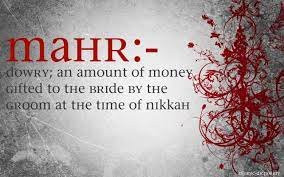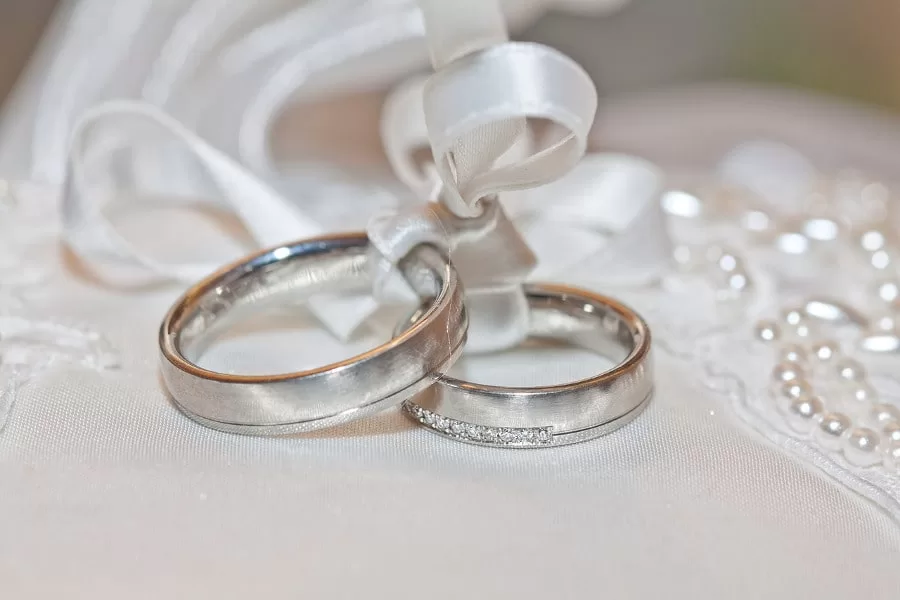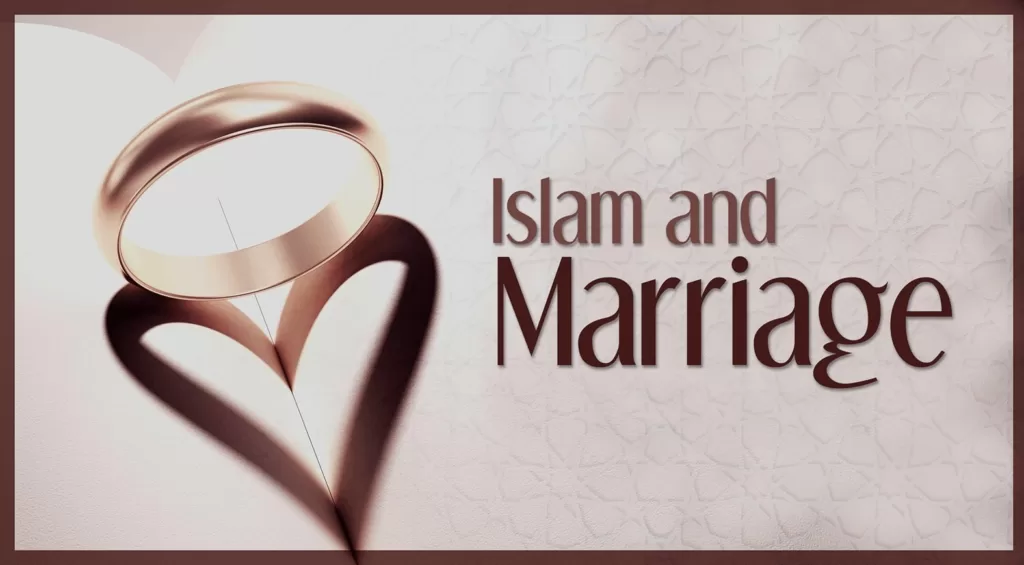Mahr The Dower Money a Symbol of Commitment and Financial Responsibility
Mahr, derived from the Arabic word which means dower, holds great significance in Islamic marriages. It is an essential component of the marriage contract and represents the financial benefit that a man provides to his wife upon their union. In this article, we will delve into the concept of Mahr, exploring its origins, legal implications, cultural variations, and the role it plays in shaping Muslim marriages.

Understanding the Significance of Mahr
Mahr, also known as Sadiq, ajr, or Farida in the Quran and hadiths, symbolises commitment and financial responsibility on the husband’s part. The woman’s legal right is to receive the Mahr, which is specified during or after the marriage contract. Unlike other contractual obligations, Mahr does not need to be mentioned during the Nikkah ceremony for it to be valid. It is an essential obligation for men, as specified in the Quran, the Sunnah, and the consensus of mujtahids.
The Obligation and Purpose of Mahr
The payment of Mahr is more than a mere gift; it represents the husband’s resoluteness in marriage, his love and respect towards his wife, and his commitment to fulfilling the financial responsibilities of building a family. Mahr is often translated as a sum of money or other property to which the wife becomes entitled by marriage. However, it is not a consideration for the contract of marriage itself but rather an obligation imposed by Islamic law as a mark of respect for the wife.
Legal Implications and Customary Practices
In Islamic marriages, Mahr can be specified by the wife or her guardian at the time of marriage. If no sum is specified, the wife is entitled to her proper dower, which is customarily fixed for the females of her family. The wife’s right to Mahr becomes complete upon the consummation of the marriage, either in fact or according to the law’s recognition through valid retirement or the death of either spouse. In the case of dissolution or separation initiated by the husband before consummation or valid retirement, the wife is entitled to half of the specified Mahr or a present called muta’t wain if no Mahr was specified.

Timing and Payment of Mahr: Mahr can be categorised as either mua’jal (prompt) or muajjal (deferred), depending on the agreement between the parties involved or the country’s customs. During the subsistence of the marriage, the wife is entitled to demand the prompt portion of her Mahr, but she is only entitled to demand the deferred portion once its specified time arrives. The fact that the value of the Mahr does not need to be mentioned during the Nikkah ceremony highlights that the marriage contract is not a business contract, where mentioning the value is necessary for validation. Instead, it serves as a gift for women, emphasising the husband’s obligation to provide for his wife.
Flexibility and Women’s Rights: The obligation to pay Mahr is non-negotiable and cannot be negated in the Nikkah. However, Islamic law allows for flexibility, as a woman can return the Mahr to her husband or remit a portion of it voluntarily. While a woman is entitled to the Mahr with the Nikkah, she is not obliged to receive it in hand. If she wishes, she can forgo her right in favour of her husband. This flexibility allows for mutual understanding and consideration within the marriage.
In short, Mahr, the dower money, plays a vital role in Islamic marriages, symbolising commitment, financial responsibility, and respect for the wife. It represents the husband’s willingness to care for his wife and fulfil his obligations within the marriage. While Mahr is a legal obligation, it also holds cultural and emotional significance. By embracing the concept of Mahr, Muslim couples honour tradition, affirm their commitment to one another, and create a foundation of mutual respect and financial security.
Mahr, or dower, holds great significance in Islamic marriages. It is a legal right of the woman, specified either during or after the marriage contract. Although it is not required to be mentioned during the Nikkah for it to be valid, the husband must pay it. The Quran emphasises the voluntary and generous nature of the mahr, stating that husbands should willingly give it to their wives. The payment of mahr symbolises the husband’s commitment, love, and financial responsibility towards his wife, showcasing his dedication to building a family. It is not a consideration for the marriage contract but a mark of respect towards the wife, as evident from the fact that the absence of a specified dower does not affect the validity of the marriage.

The wife’s entitlement to the dower becomes complete upon consummation of the marriage or through valid retirement or the death of either spouse. In cases of dissolution or separation initiated by the husband before consummation or valid retirement, the wife is entitled to half of the specified dower or a present known as muta’t wain if no dower was specified. If the separation is due to reasons attributable to the wife, she may not be entitled to any dower or present unless the marriage has been consummated. In cases where a marriage is annulled on the grounds of invalidity, the wife is entitled to no more than her proper dower. The timing of the dower payment can be immediate (mua’jal) or deferred (muajjal), depending on the contract or customs of the parties involved.
It is important to note that while the value of the dower is not a condition for the validity of the marriage contract, it serves as an obligatory gift from the husband to the wife. The verses in the Quran emphasise that the dower is a gift for women, not a price. It cannot be denied or omitted in the Nikkah, but a woman has the right to return or remit a part of the dower to her husband. The woman is entitled to the dower but can forgo receiving it, demonstrating flexibility and consideration within Islamic marital practices. The importance of mahr is widely acknowledged among scholars, leaving no dispute regarding its significance in Muslim marriages.
Contact Us
Popular Service
Provincial Tax Authorities
Misc. Services
Recent Article
-
Company Registration | Company Registration in Karachi, Islamabad/Rawalpindi & Lahore, Pakistan
-
Income Tax and Sales Tax Return Filing Services| Our Expert Corporate Lawyers In Karachi
-
Corporate Lawyers’ Need at Business Hub, Karachi
-
Additional Sales Tax Imposed
-
Comprehensive Guide to NTN (National Tax Number) Registration in Pakistan
-
Income Tax Return Filing in Karachi By Top Tax Lawyers of Pakistan
-
Trademark Registration in Karachi Safeguarding Your Business Identity
-
Taxation Trust Tax Lawyers Consultants
-
Mahr The Dower Money a Symbol of Commitment and Financial Responsibility
-
Calculating Income Tax As Per Income Tax Ordinance 2001
Book Appointment
Disclaimer: All information is provided on this portal solely for informational purposes. This portal is not affiliated with the Government website. Please note that this disclaimer also applies to our website, and we may refer to it as ‘us’, ‘we’, ‘our’ or ‘website’. The information on the website has been gathered from various government and non-government sources. We disclaim any liability for errors, injuries, losses, or damages arising from the use of this information. We also disclaim any liability for the availability and authenticity of this information. Our services consist of filling out forms, providing legal advice, and assisting our clients. The departmental processing of the registration forms is not our responsibility. You will have to use a service fee for professionally preparing your application, submitting it to the relevant authorities, and coordinating your application process. You will have to pay any Government fees.
